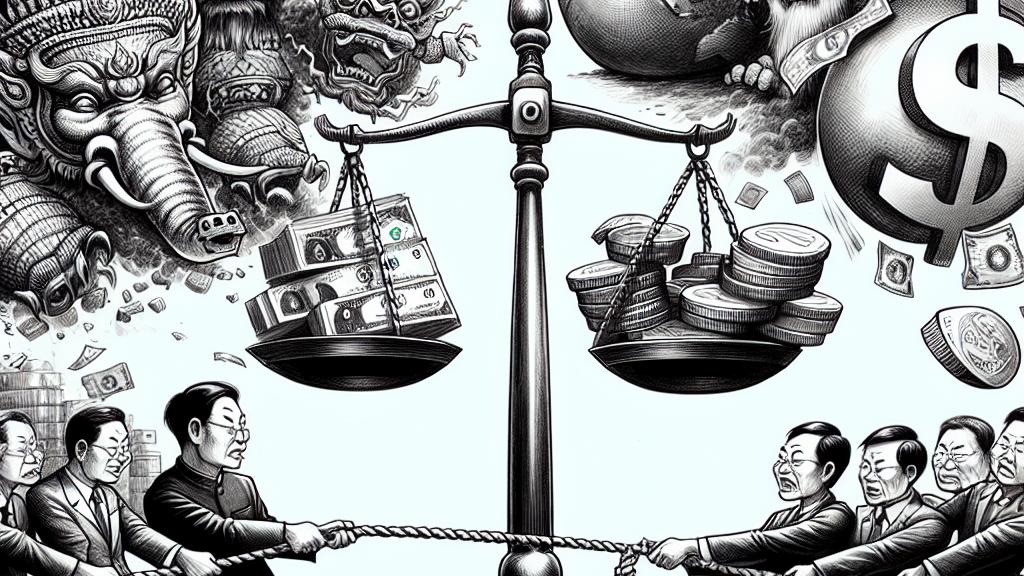Baht Takes a Dive: Is China's Economic Struggle to Blame?
Overview
- The Thai baht has experienced a significant decline against the US dollar.
- China's economic challenges are heavily influencing the baht's value.
- Future US Federal Reserve actions may further affect Thailand's currency.

The Current Situation
As of September 2024, the Thai baht has significantly weakened against the US dollar, recently crossing below the 34.20 baht level per dollar. This 0.5% drop mirrors a broader trend negatively impacting many Asian currencies, primarily driven by relentless uncertainties surrounding the Chinese economy. The government of China has struggled with economic recovery, which in part destabilizes the entire Southeast Asian region’s financial landscape. Analysts warn that if the US Federal Reserve implements less than anticipated interest rate cuts in their upcoming meetings, the baht may experience continued depreciation, heightening concerns over Thailand's financial health and its external debt burdens.
Global Economic Influences
The depreciation of the baht does not exist in isolation; it reflects global economic trends, particularly the dynamics between the US and Chinese economies. Recent increases in US treasury yields and a robust dollar are two major factors weighing on the baht. As inflation remains a pressing issue in the US, the Federal Reserve's inclination to adopt a more cautious approach to interest rate adjustments could diminish capital inflow into Thailand, exacerbating the baht's decline. Furthermore, the pressure from external sources—like rising energy prices due to the ongoing geopolitical tensions between Russia and Ukraine—also adds complexity, pushing up import costs and resulting in higher domestic inflation, which could stifle local spending power.
Looking Ahead
The outlook for the Thai baht appears uncertain as critical events loom, including the Federal Reserve's interest rate decision on September 18 and the imminent US presidential election. If the Fed indicates a modest reduction approach, reducing rates by only 25 basis points, the baht is projected to weaken further, with forecasts suggesting it could trade between 34.5 and 35.5 baht against the dollar by the end of the year. Additionally, should the political landscape shift with a Donald Trump victory, his proposed tariffs and restrictive trade policies might further depress the baht and challenge Thailand’s economic resilience. Investors and economic stakeholders are urged to closely monitor these developments, as they hold significant implications for both the baht’s stability and broader economic conditions in Thailand.

Loading...